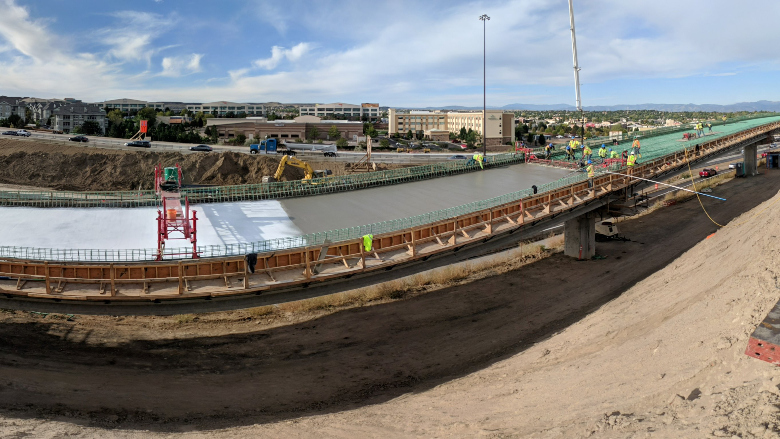The Colorado Dept. of Transportation is suing a joint venture of Flatiron and AECOM over a highway project it says is still incomplete more than three years after the original deadline.
The lawsuit, filed in Colorado’s Denver district court on Aug. 1, accuses the joint venture of breach of contract, and also accuses several surety firms of failing to ensure the performance of the contract.
CDOT awarded a $204.3-million design-build contract to the joint venture in June 2016 for its C-470 project. Plans call for the addition of two westbound tolled express lanes, one eastbound tolled express lane and other improvements along a 12.5-mile stretch of Colorado State Highway 470 south of Denver.
The original deadline for final completion was Feb. 19, 2019. Change orders extended the deadline to August, and then October 2019. But CDOT says the project is still not complete.
In the complaint, CDOT accuses the joint venture of “mismanagement” and making “bad-faith misrepresentations.” It says the contractor failed to provide it with a timely notice of delay and failed to maintain required risk insurance.
CDOT is asking for the amount of damages to be proven at trial. It says it has lost toll revenue and incurred other costs related to the delay.
Representatives from Flatiron and AECOM did not immediately respond to inquiries. The joint venture had previously submitted a request for equitable adjustment on the contract in 2017, saying CDOT had caused delays.
This is not the first legal trouble for the C-470 project.
The companies also have an ongoing federal lawsuit over the project. Los Angeles-based AECOM Technical Services Inc. brought the suit against the joint venture in October 2019 in federal district court in Colorado, alleging it was only partially paid for design services it provided as a project subcontractor to the JV.
In response, the Flatiron-AECOM joint venture denied most of the accusations and filed a counterclaim against AECOM Technical Services, alleging many designs for the project deviated from the preliminary design. The joint venture also said the design firm made “errors and omissions” that had impacted its ability to construct the project.
A federal district court judge has scheduled a 19-day jury trial to begin on July 17, 2023 in that case between the companies.




